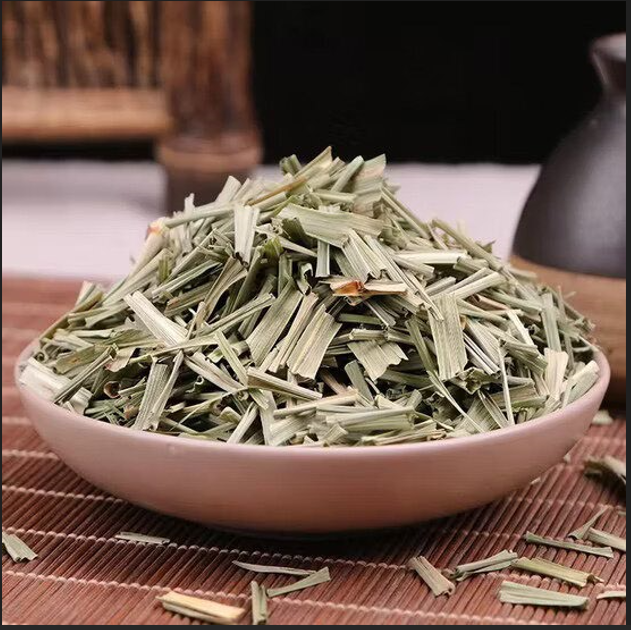Herb of the Month: Lemongrass
Welcome to this edition of our newsletter, where we delve into the wonders of the vibrant and aromatic lemongrass. Known for its refreshing citrusy scent and myriad of uses, lemongrass has been cherished by cultures around the world for centuries. Whether you're a seasoned enthusiast or new to this remarkable plant, we invite you to explore its rich history, numerous benefits, and versatile applications. We hope this guide enriches your understanding and appreciation of lemongrass. May its gentle touch bring you peace, health, and a touch of the exotic in your daily life. Enjoy exploring the many facets of this remarkable plant!
Lemongrass plant
How to Use Lemongrass
Lemongrass can be used in various forms, including:
Fresh Stalks: Perfect for cooking and making herbal teas.
Dried Leaves: Ideal for teas and potpourris.
Essential Oil: Used in aromatherapy and homemade cleaning products.
Powder: Convenient for culinary applications and beauty products.
Preparation Instructions
Cooking: Trim the root end and tough outer leaves. Slice or crush the stalks to release their flavor.
Tea Preparation:
Fresh Tea: Boil 1-2 stalks in water for 5-10 minutes.
Dried Tea: Use 1 tablespoon of dried leaves per cup of boiling water. Steep for 5-7 minutes.
Tea Blend Options
Lemongrass and Ginger Tea: Combine fresh lemongrass stalks with a slice of ginger for a soothing, warming drink.
Lemongrass and Mint Tea: Blend dried lemongrass leaves with fresh mint for a refreshing and invigorating brew.
You can purchase lemongrass on our shop here.
Try our Herb of the Month Subscription Box, featuring Lemongrass!
Dosage and Precautions
While lemongrass is generally considered safe, it's important to consider the following:
Moderation: Limit intake to avoid potential side effects such as dizziness or dry mouth.
Allergies: Perform a patch test before using lemongrass oil on the skin.
Pregnancy and Breastfeeding: Consult a healthcare provider before use.
Medication Interactions: If you're on medication, especially for heart or blood pressure conditions, seek medical advice before consuming lemongrass.
The statements and information found on this website have not been evaluated by the Food and Drug Administration. I do not treat or diagnose disease or illness, nor does any of the information that I share. None of this information serves as a replacement or substitute for medical advice.
Please remember, I AM NOT A DOCTOR. The information shared by me, be it written or verbal, is for educational and informational purposes only. PLEASE seek medical help when you need it. These products are not intended to diagnose, treat, cure or prevent any disease. For any suspected or known illness or health concern, always consult with your physician or health care provider. I do not condone or advise anyone to cease treatment for any known or discovered disease or illness. Please consult a medical professional prior to the purchase or use of any herbal product or program.
History of Ashwagandha
Lemongrass, or Cymbopogon citratus, is a tropical plant native to Southeast Asia. It has been cultivated for centuries, primarily in India, Sri Lanka, Malaysia, and Thailand. Ancient texts reveal its use in traditional medicine, culinary arts, and spiritual practices. Today, lemongrass continues to be a staple in many households, celebrated for its unique flavor and therapeutic properties.
Benefits of Lemongrass
Lemongrass is not just a culinary delight; it also offers a range of health benefits:
Antioxidant Properties: Helps combat oxidative stress and supports overall well-being.
Anti-inflammatory Effects: May reduce inflammation and ease related symptoms.
Digestive Aid: Known to help soothe the digestive tract and alleviate bloating and discomfort.
Antimicrobial Activity: Can help fight bacteria and fungi, promoting a healthier environment.
Stress Relief: The calming scent of lemongrass is often used in aromatherapy to reduce anxiety and improve mood.
Spiritual Uses of Lemongrass
In addition to its physical benefits, lemongrass is revered in spiritual circles for its:
Cleansing Properties: Used in smudging rituals to cleanse spaces of negative energy.
Enhancement of Intuition: Believed to sharpen intuitive abilities and enhance meditation practices.
Protection: Often used in protective rituals to ward off negative influences.

